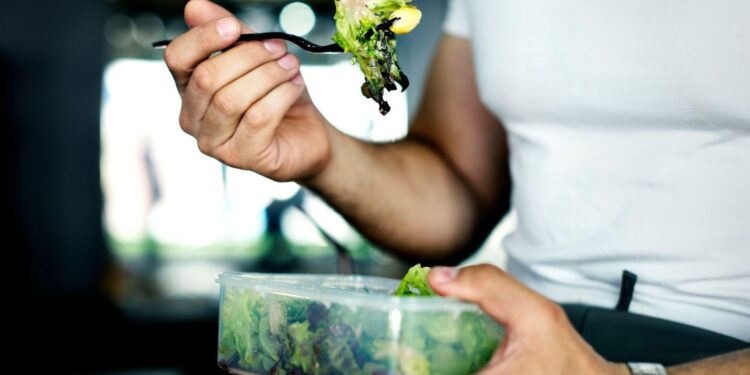Image from Unsplash
Whether you’re a busy professional, a student on the go, or a parent juggling family meals, eating well is a universal challenge. In a world full of ever-changing diets and fast-paced living, sustainability isn’t just about the planet—it’s also about creating eating habits you can maintain for years, not just weeks. Adopting sustainable eating isn’t a one-size-fits-all formula. It’s about small, smart choices that support your unique routine, goals, and taste buds.
For many, “healthy eating” conjures images of restrictive meal plans or bland, repetitive foods. But today’s approach is refreshingly flexible. Brands like Flexible Dieting Lifestyle are leading the way by showing how macro-friendly choices—even at places like Starbucks—can fit into real-world, enjoyable routines. Instead of “all or nothing,” the key is finding strategies that work for you—no matter where you start or where you want to go.
Ready to feel good about your food? Here are five proven, practical eating habits that will help you eat well, fuel your body, and feel empowered to enjoy life—on your terms.
1. Embrace the Power of Planning Without Perfection
Sustainable eating isn’t about crafting the perfect meal every day. It’s about developing a flexible structure that makes nutritious choices easier—especially when life gets hectic.
What it looks like in real life:
- Batch-cooking and meal prep: Set aside a couple of hours each week to prepare simple staples (grilled chicken, roasted veggies, brown rice, or quinoa). Store in clear containers so healthy options are always on hand.
- Menu mapping: If you’re not a fan of full meal prep, try menu mapping: jot down three to four meal ideas for the week, keeping ingredients versatile and swappable. This provides structure without rigidity.
- Smart snacks: Keep a few go-to snacks at work, in the car, or in your bag. Options like Greek yogurt, nuts, baby carrots, or protein bars prevent impulsive junk-food stops.
Why it works:
Planning takes the guesswork out of daily decisions, reduces stress, and cuts down on food waste. Most importantly, it helps you stay consistent even when you’re tired, busy, or not motivated to cook.
2. Make Balance, Not Restriction, Your Goal
Fad diets often fail because they rely on extreme restriction—a method that’s hard to sustain long term. A more effective (and enjoyable) approach is flexible balance: include a wide variety of foods, focusing on nutrients over rules.
How to put it into action:
- Follow the 80/20 rule: Aim to make roughly 80% of your choices nutrient-dense (fruits, vegetables, lean proteins, whole grains, healthy fats), and allow yourself 20% for fun or comfort foods. This takes the guilt out of occasional treats and keeps cravings at bay.
- Customize your plate: Each meal should include a source of protein, a serving of veggies or fruit, some whole grains, and a healthy fat. The proportions can shift depending on your activity level or preferences.
- Stay hydrated: Don’t overlook the importance of water! Adequate hydration supports digestion, energy, and mood.
A practical tip:
Adopting a flexible approach lets you enjoy your favorite coffee drinks or desserts by tracking and adjusting the rest of your meals, rather than forbidding entire food groups.
3. Prioritize Mindful Eating and Portion Awareness
It’s easy to eat out of habit, stress, or distraction—especially in a world of screens and multitasking. Mindful eating is a sustainable habit that helps you tune into real hunger and fullness cues, so you enjoy food more and avoid overeating.
How to practice mindfulness at meals:
- Pause before eating: Take a breath, notice your food, and express gratitude. This sets a slower pace and makes eating more intentional.
- Minimize distractions: Turn off the TV, put away your phone, and focus on the meal and your company—even if you’re eating alone.
- Check in with yourself: Halfway through your meal, pause and ask: Am I satisfied? If not, continue eating. If yes, save the rest for later.
- Respect your fullness: Stop eating when you’re satisfied, not stuffed. Leftovers are always an option.
Why it matters:
Studies have shown that mindful eating leads to improved digestion, greater meal satisfaction, and a healthier relationship with food. According to Harvard T.H. Chan School of Public Health, mindfulness can also help prevent weight gain and emotional eating.
4. Get Creative with Your Choices
Image from Unsplash
Eating sustainably doesn’t mean settling for bland or repetitive meals. In fact, the more variety you bring to your table, the more likely you are to stick with healthy habits long term.
Ways to shake up your routine:
- Try new produce: Pick one new fruit or vegetable each week to sample. You’ll expand your palate, support local growers, and keep meals exciting.
- Explore world cuisines: Incorporate flavors and cooking methods from around the globe—Mediterranean, Asian, Latin American, or Middle Eastern meals can all be packed with nutrients and delicious taste.
- Reinvent leftovers: Transform yesterday’s dinner into today’s lunch. For example, roast chicken becomes a filling for wraps, salads, or grain bowls.
- Upgrade your drinks: If you’re a coffeehouse fan, explore macro-friendly or lower-calorie options for treats that won’t break your progress.
Sustainability bonus:
Getting creative reduces food waste, increases nutrient diversity, and keeps your meals something to look forward to—an underrated but vital part of staying on track.
5. Listen to Your Body—and Adjust as Needed
No diet plan or expert can replace your own body’s signals. Sustainable eating is about being responsive and adaptable: honoring hunger and fullness, noticing what energizes you, and changing things up when needed.
How to build self-awareness:
- Track your meals and moods: Keep a journal (or use an app) to note what you eat and how you feel. Patterns will emerge, guiding you to what works best.
- Be flexible: Some days are busier than others; sometimes you’ll crave comfort foods or need extra fuel for activity. It’s okay to adjust your plan.
- Avoid negative self-talk: If you have an off day, skip the guilt and move on. Progress is about consistency, not perfection.
- Consult professionals as needed: If you have specific health conditions or nutrition goals, check in with a registered dietitian or doctor for personalized support.
Why it’s powerful:
Your eating habits should serve your life, not control it. By tuning into your own needs, you make eating well a source of strength and joy—not stress.
Sustainability Means Progress, Not Perfection
Sustainable eating is less about strict rules and more about practical, enjoyable habits that fit your life. When you plan ahead (without obsessing), balance nutrient-rich foods with favorite treats, eat mindfully, keep meals creative, and listen to your body, you build a foundation for lasting wellness.
Remember, it’s the small, repeated choices—not grand gestures—that shape your health over time. If you need inspiration, platforms like Flexible Dieting Lifestyle prove you can make room for fun, macro-friendly favorites while sticking to your bigger goals. And as leading public health organizations note, these habits don’t just support your waistline—they boost your energy, mood, and overall quality of life for years to come.













